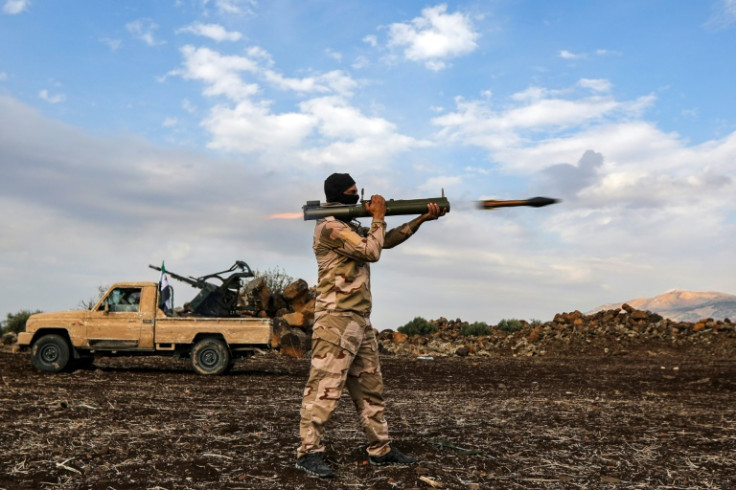Islamic State Leader Killed In Free Syrian Army Operation In Mid-October- U.S

Islamic State (IS) militant leader Abu al-Hassan al-Hashemi al-Quraishi was killed in an operation carried out by the rebel Free Syrian Army in mid-October in Syria's Daraa province, the U.S. military said on Wednesday, another heavy blow to a group that once struck fear across the Middle East.
No U.S. military troops were involved in the operation, a U.S. military spokesperson said.
Earlier on Wednesday a spokesperson for the Islamic State, in an audio message posted on an affiliated Telegram channel, had said that leader Abu al-Hassan al-Hashemi al-Quraishi was killed in fighting.
IS has selected Abu al-Hussein al-Husseini al-Quraishi as its new leader, the spokesman added. He said Abu al-Hassan al-Hashemi al-Quraishi was killed while "fighting enemies of God", without elaborating.
No details about the new IS leader were given in the audio.
The spokesman urged Islamic State members in all countries to pledge allegiance to the new leader, adding that "he is one of the loyal sons of the (Islamic) state".
Hassan Hassan, author of a book on Islamic State, said the group was diminished. "This doesn't mean the group is finished, but for now it is a shadow of its former self, they are hollowed out in terms of their leadership and their ability to carry out attacks," he said.
"They don't have iconic, charismatic leaders any more, and they haven't carried out any major attacks recently."
The White House welcomed the news that Abu al-Hassan al-Hashemi al-Quraishi had been killed, National Security Council spokesman John Kirby told reporters.
Islamic State emerged from the chaos of the civil war in neighbouring Iraq and took over vast swathes of Iraq and Syria in 2014. Former IS caliph Abu Bakr al-Baghdadi declared an Islamic caliphate from a mosque in the northern Iraqi city of Mosul that year and proclaimed himself caliph of all Muslims.
Islamic State's brutal rule, during which it killed and executed thousands of people in the name of its narrow interpretation of Islam, came to an end in Mosul when Iraqi and international forces defeated the group there in 2017.
Since the peak of its power seven years ago, when it ruled millions of people in the Middle East and frightened the world with deadly bombings and shootings, Islamic State has slipped back into the shadows.
Its remaining thousands of militants have in recent years mostly hid out in remote hinterlands of fractured Iraq and Syria, though they are still capable of carrying out significant insurgent-style attacks.
© Copyright Thomson Reuters 2025. All rights reserved.





















